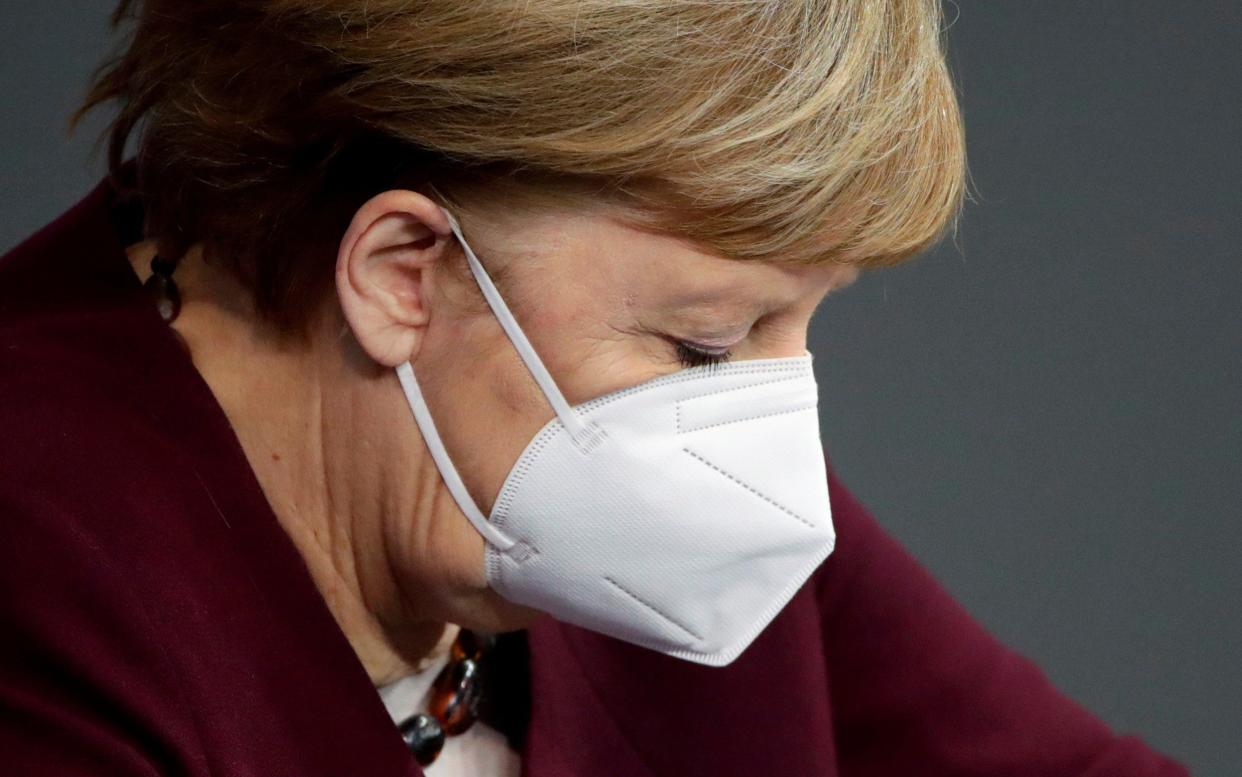Merkel to hold vaccine talks amid coalition row after Germany fails to order enough

- Oops!Something went wrong.Please try again later.
Angela Merkel moved to head off a split in her coalition government on Tuesday by announcing urgent talks on increasing production of the coronavirus vaccine.
The move came as her main coalition partners, the centre-Left Social Democrats (SPD), demanded answers over how the country where the Pfizer-BioNTech vaccine was developed failed to secure enough orders and is now facing a shortage.
In a cabinet flare-up, Olaf Scholz, the SPD finance minister and vice-chancellor, presented Jens Spahn, the health minister and a member of Mrs Merkel’s Christian Democrats (CDU), with a four-page list of questions about his handling of the affair. One senior CDU politician described the list of questions as “more like a committee of inquiry” than a request from a coalition partner.
The row is a clear signal that political manoeuvring has begun in the midst of the pandemic ahead of September’s German elections — Mr Scholz is the SPD’s candidate for chancellor. But it is also a sign that the fall-out from the vaccine debacle threatens to engulf Mrs Merkel, who until now has been widely praised for her response to the virus.
Mr Spahn reportedly responded by telling his CDU colleagues at a party meeting he was “optimistic” Germany would “probably” be able to vaccinate its entire population by the end of June. That would be a dramatic acceleration of current plans and would put Germany ahead of the UK and its European neighbours. But Mr Spahn offered no details of how he planned to accomplish such a swift roll-out.
BioNTech is set to deliver 5.3m doses to Germany by February 16 and will deliver a further 667,000 a week from the end of January, according to details leaked from government talks. But that will still leave Germany far short of the doses it needs to vaccinate its population. Mrs Merkel is set to hold talks on Wednesday on how to ramp up production.
Mr Spahn, who was previously considered to have performed well in the pandemic, looks set to be the main political loser of the row after Mrs Merkel took over control of the issue from him. But according to Bild newspaper it was the chancellor who blocked plans by her health minister to secure enough vaccine last summer when she insisted he leave negotiations to the European Commission.
The move came as Germany extended its lockdown until the end of January and tightened restrictions. Under the new measures Germans will only be allowed to meet with one person from outside their household at a time.
Those living in hard-hit areas will be restricted from travelling more than 15km (9 miles) from their home without a valid reason. Schools and nurseries will not reopen following the Christmas holidays and will remain closed until the end of January

